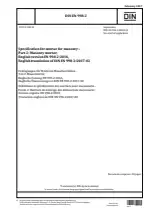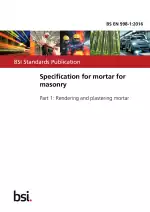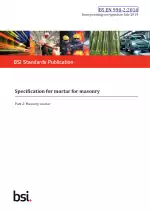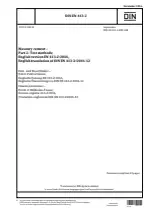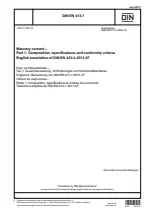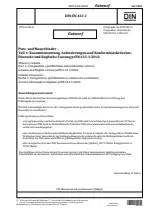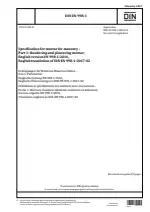Specification for Mortar for Masonry - Part 2: Masonry Mortar
Also Known As:
The DIN EN 998-2 standard outlines the requirements for factory-made masonry mortars used in various masonry applications. These applications include masonry walls, columns, and partitions in both buildings and civil engineering works.
The standard focuses on both fresh and hardened mortar. For fresh mortar, it specifies performance requirements such as workable life, chloride content, air content, density, and correction time (for thin-layer mortar only). For hardened mortar, it defines performance criteria like compressive strength, bond strength, and density, which can be measured using specific test methods provided in separate European Standards.
The DIN EN 998-2 standard also includes provisions for the assessment and verification of constancy of performance (AVCP) of the masonry mortar. It ensures that the product consistently meets the requirements specified in the standard. Additionally, the standard includes marking requirements for products covered by it.
While the standard covers various types of masonry mortars, it specifically excludes site-made mortar. However, it can still be used in conjunction with codes of application and national specifications that pertain to site-made mortar.
| Descriptors | Brickwork, CE marking, Classification, Conformity assessment, Construction, Construction materials, Constructional products, Definitions, Designations, Evaluations, Factory mortars, Fresh mortar, Hardened mortars, Marking, Masonry, Masonry mortars, Mortars, Properties, Specification (approval), Testing, Thin bed mortars, Water absorption, Water vapour permeability, Water vapour transmission |
| ICS Codes | 91.100.10 - Cement. Gypsum. Lime. Mortar |
| Language(s) | English |
| File Size | 1.0 MB |

